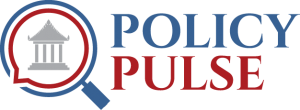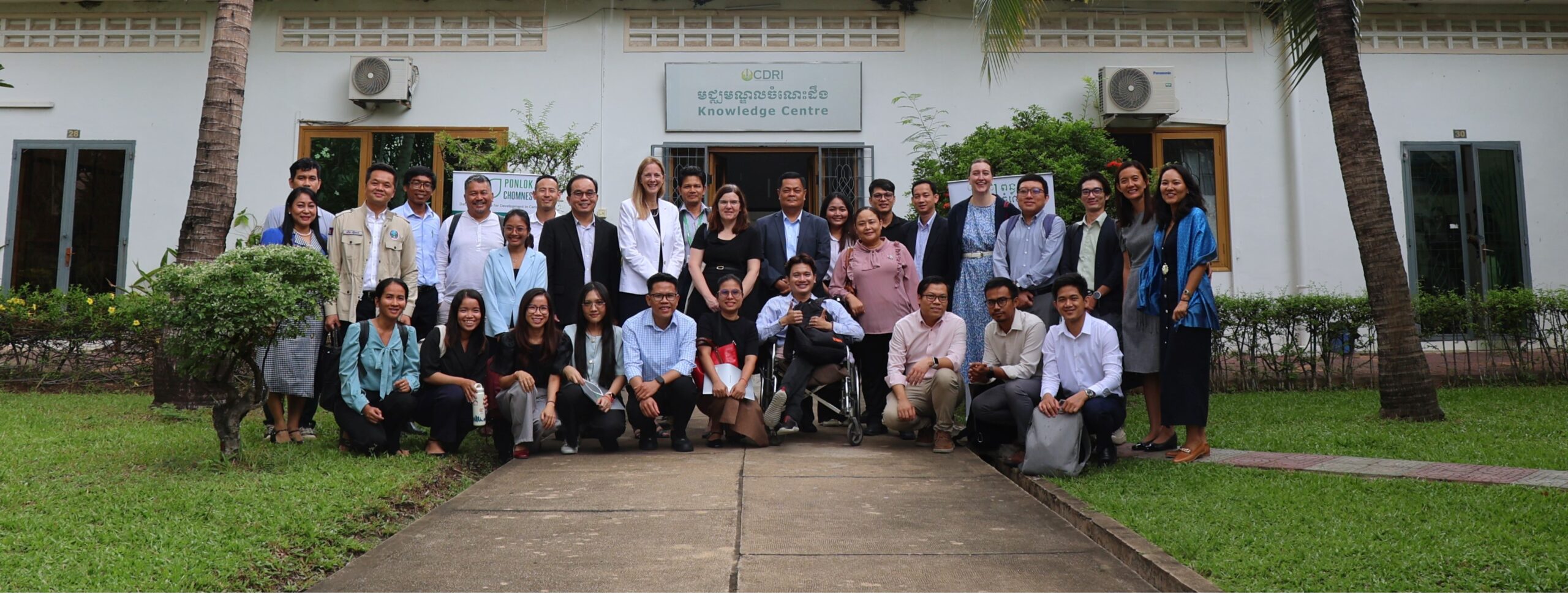Partners under Ponlok Chomnes Phase II
Strategic Partners
With support from the Australian Government through the Department of Foreign Affairs and Trade (DFAT), Ponlok Chomnes II (PCII) will support four strategic partners to implement the program strategy and activities. The program strategy and activities will be guided by the Strategic Partners’ strategic directions, their specific areas of expertise, and their selected opportunity cases.
During the Program implementation, under each opportunity case, the Strategic Partners will conduct research or use existing research; communicate this research through a variety of methods; and hold inclusive dialogues. Across all these three policy approaches, The Asia Foundation will supplement with organizational capacity.
The Strategic Partners can implement all or some of the following program activities based on their selected opportunity cases. The phasing of the activities will differ from partner to partner.
The four strategic partners have been identified and they are:
- Cambodia Development Resource Institute
- Center for Khmer Studies
- Centre for Policy Studies
- Future Forum
Innovation Partners
The Ponlok Chomnes Innovation Fund is a competitive process for Cambodian organisations to propose and test their innovative ideas in response to emerging policy opportunities/issues either at the national or subnational level. This Innovation Fund is expected to support up to four Cambodian organisations. This would be an eight-month to twelve-month grant.
The Ponlok Chomnes Innovation Fund will support innovative ideas that use inclusive approaches to address inclusive climate resilience; digital transformation; situation, needs, and access of GEDSI accessing public services; women, peace, and security; and other policy-relevant topics. In addition, selected partners will have access to a wider network of knowledge ecosystem in Cambodia. Partners will be able to strengthen their existing networks and build new networks through Ponlok Chomnes’ convening mechanisms, including policy dialogues. Through these mechanisms, partners will be able to increase their opportunities to interact with other partners and policymakers at both the national and sub-national levels.
During the call for Expressions of Interest for Innovation Fund (Round One), four institutions were identified. They include:
- Analyzing Development Issues Centre
- My Village Organization
- National Institute of Social Affairs
- National University of Battambang
During the call for Expressions of Interest for Innovation Fund (Round Two), four institutions were identified trial or test different dialogue models using inclusive approaches that fit the Cambodian context. They include:
- Epic Arts
- Lakhon Komnit Organization
- Nak Akphivath Sahakum
- People’s Action for Inclusive Development
Collaborative Partners
The Collaborative Fund is an opportunity-based approach to partnership for think tanks, civil society organisations, and others to conduct activities (research, communication, or dialogue) at either national or sub-national level. The Collaborative Funds will support a given opportunity case, as well as other pressing issues that emerge from strategy testing and ongoing program monitoring. Activities will aim to increase the buy-in and trust of both government counterparts and non-governmental organisations. The Collaborative Partners include:
- Asian Vision Institute
- Cambodian Institute for Cooperation and Peace
- Department of Sustainable Urban Planning and Development, Royal University of Phnom Penh
- National University of Management
- Open Development Cambodia
Policy Engagement Partners
The Ponlok Chomnes Policy Engagement Fund is a collaborative grant provided to organisations or Technical Steering Committee members to address needs for research (data), communication, or dialogues on the Technical Steering Committee respective institution’s priorities to promote the appreciation of evidence-based decision-making. The activities include, but not limited to, the followings:
- Collect specific data and evidence for the Technical Steering Committee on the topic proposed by the Technical Steering Committee member for policy decisions or inputs; or
- Use existing research materials or data to develop communication materials that address the needs of the Technical Steering Committee member for policy decisions or inputs; or
- Organise policy dialogues (consultation, discussion, community workshop, and others) for policy decisions or inputs; or
- Support and promote Technical Steering Committee member’s effective participation in various multistakeholder working groups and committees; or
- Support and promote Technical Steering Committee member’s ability to improve the use of inclusive dialogues and/or diverse evidence sources by the ministries.
The Policy Engagement Fund Projects include:
- Strengthening CSOs’ Capacity & Inclusive Space, Cooperation Committee for Cambodia
- Promoting Inclusive Dialogue for Sustainable Development, NGO Forum on Cambodia
- Agricultural Product Specialisation by Agroclimatic Conditions in Pursat Province, Ministry of Agriculture, Forestry, and Fisheries, and Centre for Policy Studies
- Finding Solutions to Help Rice Farmers in Kampong Thom Province, Office of the Council of Ministers, and Centre for Policy Studies
- Cambodia’s SME Landscape, Ministry of Industry, Science, Technology, and Innovation, and CamTech University
- Technical Support for National Statistical System Assessment and Stakeholder engagement for National Strategy for the Development of Statistics, National Institute of Statistics
- Enhancing disability inclusion in public land transportation, Ministry of Public Works and Transport, and Cambodian Disabled People’s Organisation
- Smart city as a social transition towards inclusive development and through technology: case studies from four cities in Cambodia, Ministry of Interior, and Royal University of Phnom Penh
- Achieving social protection for Cambodia’s NDC 3.0 by 2035, Ministry of Environment, National Institute of Social Affairs, and Analyzing Development Issues Centre
Inclusive Awards
The Ponlok Chomnes Inclusive Awards recognise and encourage work that demonstrates inclusivity, be it through innovative research, accessible and inclusive research products, or dialogue that addresses the needs and views of diverse groups in the policy processes at local or national levels. Following the call for Inclusive Awards Nomination, three winners were identified. As part of the call, the winners had a chance to submit concept notes for funding support to implement inclusive research, communications, and dialogue.
- Cambodia Children and Young People Movement for Child Rights (CCYMCR)
- Chhloh Theatre
- Tath Nika
GEDSI Consortium
The Ponlok Chomnes Program aims to promote the voices and perspectives of women, people with disabilities, and other socially disadvantaged groups by ensuring their meaningful participation in select policy issues. Therefore, the program has formed the Gender Equality, Disability, and Social Inclusion (GEDSI) Consortium consisting of expert organisations in gender, disability, and other socially disadvantaged groups to integrate the GEDSI lens into the program’s processes, activities, and operations. The GEDSI Consortium also provides the program and the program partners access to their wide range of local networks and groups in Cambodia such as indigenous, ethnic minorities, and marginalised communities.
Three Civil Society Organisations have been identified and sought partnership establishment to support GEDSI mainstreaming within the program. They encompass:
- Cambodian Disabled People’s Organisation (CDPO)
- Gender and Development in Cambodia (GADC)
- Women Peace Makers (WPM)
Within the 4-year program of the Ponlok Chomnes Program, the GEDSI Consortium will perform the following capacity-building and advisory roles:
- Provide gender and disability capacity building to the program team and program partners;
- Offer expert insights on specific needs and priorities of marginalised communities;
- Advise the program partners’ activities such as research (review designs and proposals), effective communication, and inclusive dialogue;
- Facilitate various target groups’ engagement at both national and sub-national levels;
- Support the program on Monitoring, Evaluation, and Learning to ensure GEDSI objectives and desired results are properly tracked, monitored, and reported;
- Support Strategic Partners to create internal GEDSI policies to be utilised within the organisations (where relevant); and
- Provide recommendations to the program (where relevant and based on request).
Technical Steering Committee
The Technical Steering Committee is a semi-formal body consisting of 13 members to support implementation and ensure active engagement and ownership of the government.
Members include representatives from the ministries actively involved in policy planning, implementation and review processes; technical experts; key informants and representatives from academia and civil society organizations involved in diverse policy processes.
The Technical Steering Committee provides strategic advice to support the successful implementation of the program.
- Providing strategic guidance and oversight to the program’s partners in navigating policy processes
- Bridging where possible between the program’s partners and relevant policy processes
- Participate in policy dialogues and program events as a speaker/panelist
- Championing the importance of evidence-based decision-making and independent research within the wider public and communities
- Identifying opportunities for holding dialogues and using evidence in their work, seeking ways to maximize the impact of research findings on policy processes and outcomes
Ministry Focal Points
In Phase 1, the Ponlok Chomnes Program recognized the importance of engaging with ministries early on and therefore have been engaging with 21 Ministry Focal Points. In Phase 2, the Program team has decided to continue and refine this practice to align with the program’s commitment to sustaining and improving successful engagement strategies.
Potential engagement of the Ministry Focal Points with the Program includes:
- Share crucial policy process information, including research and dialogue updates on behalf of their ministries. From the Program’s side, send regular updates.
- Participate in Ponlok Chomnes policy dialogue.
- Facilitate connections with relevant individuals within their ministry and across networks.
- Engage in knowledge-sharing sessions, including topics like M&E, research methodologies, and data sourcing organized by the Program.
Partners Under Ponlok Chomnes Phase I
EMERGING RESEARCH FUND
The Asia Foundation selected a number of local organizations each round to receive Emerging Research Fund and Collaborative Research Fund to conduct discrete pieces of quality research with policy relevance either at local or national level.
The Ponlok Chomnes Phase I Emerging Research Fund competition aimed to support any organizations doing action research or working on diverse development issues that impact policy, particularly, nascent, traditionally under-represented, and/or smaller organizations. This effort will give visibility and voice to a broad and diverse pool of potential recipients to propose innovative research and are ultimately able to produce quality research, particularly on issues that may not be areas of focus for larger, more established organizations.
During the Expression of Interest (EOI) for Emerging Research Fund (ROUND ONE), four institutions were identified. They include:
- The Affiliated Network for Social Accountability – Cambodia
- Department of Tourism, Royal University of Phnom Penh
- Khmer Association for Development of Countryside
- New Generation Pedagogical Research Center, Kampuchea Action to Promote Education
During the Expression of Interest (EOI) for Emerging Research Fund (ROUND TWO), two institutions were identified. They include:
During the Expression of Interest (EOI) for Emerging Research Fund (ROUND THREE), four institutions were identified. They include:
- Analyzing Development Issues Centre
- Coalition for Integrity and Social Accountability Organization
- Vicheasthan Bamreu Neak Samrabsamroul Karngea Akphiwat
- Youth Council of Cambodia
COLLABORATIVE RESEARCH FUND
The Ponlok Chomnes Phase I Collaborative Research Fund was a competitive process for think tanks/research institutions to propose a joint rapid action-research in consultation and collaboration with various government ministries in Cambodia. The proposed research should focus on policy issues related to Cambodia’s post-COVID-19 recovery; Cambodia’s foreign policy and/or international relations; domestic issues and challenges that Cambodia could raise as being of regional importance during its chairpersonship of ASEAN; and social protection challenges; among other emerging issues.
During the Expression of Interest (EOI) for Collaborative Research Fund, four institutions were identified. They include:
- Center for Strategy and Innovation Policy
- Center for Sustainable Water
- Child Rights Coalition Cambodia
- NUM Research Center, National University of Management

